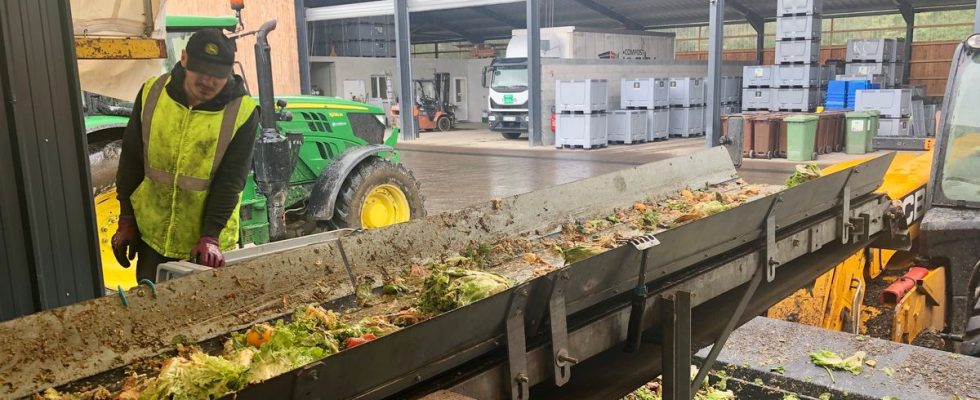His granddaughters no longer play in the back of his garden. And he has “not received any friends in the summer” on his terrace, so much “the smells are to vomit”. For ten months, Jean-Louis and his neighbors in La Chapelle-sur-Erdre, north of Nantes, say they have been living “a nightmare”. The fault, according to them, with the new Terra ter composting platform which has been installed a hundred meters from the first dwellings in this residential area. “This summer, it could smell 24 hours a day. Since the beginning of the year, it is less frequent but there are odors for an hour or two, several times a week, they say. The worst is when they dump the bins and mix the material, it stinks! Depending on the winds, it can be terrible. »
Ecological, innovative, essential for recovering large volumes of green and food waste, these large composting platforms are multiplying all over France. But in some cases, cohabitation is difficult with residentsas the press from all over France sometimes echoes: “A composting company put on notice because of bad smells in the Hérault”, headlined France 3 Occitania last year. “Composting platform in Langres: unpleasant and persistent odors”, noted the Journal of Haute-Marne few months ago. At the start of 2023, it is therefore around Nantes that the mustard is rising in the noses of the neighbours.
The “false start” of a “virtuous project”
This vast 7,000 m² site, which is presented as a transit platform, receives daily food waste (mostly recovered from schools in the metropolis) and green waste, in particular that of the municipality. On site, employees are responsible for mixing them before transporting the material to the fields of eight partner farmers, where it will decompose for several months to turn into compost that is then used to enrich the soil. A “virtuous project”, in a short circuit, except that several shortcomings, some of which related to olfactory nuisances, were noted by the departmental directorate for the protection of populations (DDPP), asking SCIC Nord-Nantes and its technical partner Compost in Situ to comply by June 14.
“A false start” recognizes today Dana Pfeuty, the director of the site, who ensures that 90% of the corrective actions have meanwhile already been carried out. Several tens of thousands of euros have been invested to completely overhaul the process: the material, previously dumped directly on the ground, no longer touches it and now passes through a skip and then onto a conveyor belt where a final sorting (to remove any cutlery or pieces of plastic) is done manually. “Above all, the juices are no longer stored in the pit, but harvested in an airtight tank, adds Ludovic Fabre, Terra Ter project manager at SCIC Nord Nantes. As for the material, it arrives in the morning and leaves in the evening. We have improved juice and flow management. A visit so that the general public can see these improvements is planned for the beginning of May.
Near Pau, the platform is moving
If the managers are confident about the disappearance of olfactory nuisances, with the ambition to open four new sites elsewhere in the Nantes metropolis, the residents are more circumspect, even if they admit to being less inconvenienced lately. Gathered in an association bringing together a hundred families, they fear a possible increase in load and the return of more summery temperatures. As relations now seem strained between the two parties, the latter do not rule out taking legal action. “From the start, we have been lied to, we no longer believe in their ability to solve problems”, judge Jean Iemmolo, member of the Respire collective at the Chapel who fears a “public health problem” and no longer sees any other solutions. than a relocation of activity.
A change of site is what should end a long battle between residents of the Lescar composting platform, near Pau. For ten years, restaurateurs and hoteliers in the largest commercial area of the agglomeration complained of pestilential odors, multiplying the reports. Two months ago, the town hall of the town, which supported them, finally announced that it had succeeded in convincing the site to move. “It took time, the setting up of sentinels, inconclusive technical modifications, for the urban community to take things seriously, indicates to 20 minutes Valérie Revel, the mayor of Lescar. A new ground was finally found, bigger and especially in the open field! The move is hoped for 2024.

